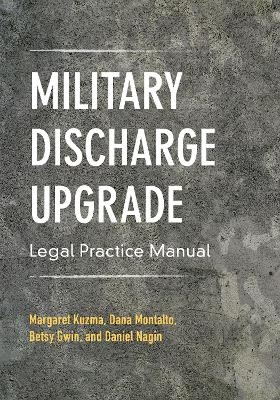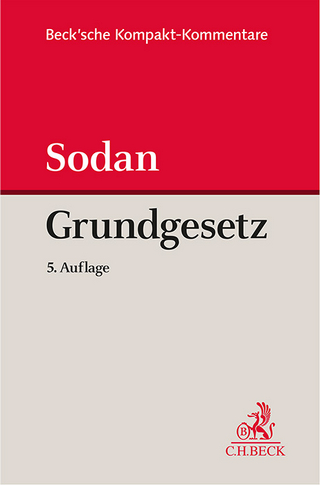
Military Discharge Upgrade Legal Practice Manual
American Bar Association (Verlag)
978-1-64105-891-9 (ISBN)
- Titel z.Zt. nicht lieferbar
- Versandkostenfrei
- Auch auf Rechnung
- Artikel merken
“This book represents in every way the intent of my 2014 PTSD memo instructing a review of less-than-honorable discharges. I hope it will help grow the field of discharge upgrade advocacy so all veterans with unjust or erroneous discharges will have their service to our country recognized. We owe every veteran nothing less.”
—Chuck Hagel, Secretary of Defense (2013-2015), U.S. Senator (1997-2009), Vietnam Veteran
“An Honorable Discharge is a point of great pride and achievement for every veteran and it must remain so. However, there are cases where a service member’s discharge does not recognize all the factors contributing to conduct, especially the effects of PTSD and other neurological and psychological issues. It is here that the Military Discharge Upgrade Legal Practice Manualprovides a major contribution. It presents a comprehensive and detailed explanation of all aspects of the discharge review process. It allows individuals and their counselors to understand their rights and the procedures necessary to reassess a discharge. The authors have made a valuable contribution to all who have served.”
—Senator Jack Reed, Rhode Island, Chairman, Senate Armed Services Committee; US Army Veteran
“This is one of the rare books that can change lives for much the better…. [T]he steps of action and detailed analysis provided here will assist hundreds of thousands of former service members barred from the vital assistance they need to heal and reintegrate into civilian society. Those who have served the country deserve no less.”
—Martha Minow, 300th Anniversary University Professor, Harvard University
The need for a comprehensive guide to discharge upgrade practice could not be more critical. A 2020 report found that hundreds of thousands of veterans have been, or are at risk of being, unjustly denied benefits because they have received less-than-honorable discharges. Many of these veterans have experienced trauma (including combat trauma and Military Sexual Trauma), mental health conditions or medical conditions (such as Post-Traumatic Stress and Traumatic Brain Injury), or discrimination (based on race, sex, or LGBTQ status) while in the military.
The Manual covers fact investigation, legal research, and case strategy in advocating for discharge upgrades before military review boards. Each representation stage receives detailed attention, from initial intake to administrative proceedings to federal court review.
Margaret Kuzma is an attorney in the Veterans Legal Clinic at the Legal Services Center of Harvard Law School, where her work focuses on complex discharge upgrade petitions. Previously, she directed the Veterans Inclusion Project and the Discharge Upgrade Practice at the Connecticut Veterans Legal Center. She has been a Visiting Clinical Lecturer with the Veterans Legal Services Clinic at Yale Law School, and she cofounded the Veterans Law Project at Quinnipiac University School of Law. Prior to becoming a public interest attorney, Ms. Kuzma ran the Sexual Assault Prevention and Response Program for Fort Benning and U.S. Army Garrison Baumholder. Betsy Gwin is Associate Director of the Veterans Legal Clinic at the Legal Services Center of Harvard Law School, where she is a Clinical Instructor and Lecturer-on- Law. Her work focuses on representing disabled veterans in appeals to the U.S. Court of Appeals for Veterans Claims, appeals for state veterans’ benefits, and discharge upgrade petitions. Ms. Gwin previously worked in legal services and was a public defender, representing parents and children in child welfare proceedings in the Child and Family Law Division of the Massachusetts Committee for Public Counsel Services. Dana Montalto is a Clinical Instructor and Lecturer-on-Law in the Veterans Legal Clinic at the Legal Services Center of Harvard Law School, where her work and teaching focus on representing veterans with less-than-honorable discharges. Ms. Montalto also founded and directs the Veterans Justice Pro Bono Partnership, which connects veterans who wrongfully received less-than-honorable discharges with pro bono attorneys. She has written about the legal history of the Department of Veterans Affairs eligibility rules for veterans with less-than-honorable discharges and the challenges veterans with less-than-honorable discharges face in accessing basic supportive services at VA. Daniel Nagin is a Clinical Professor and Faculty Director of the Veterans Legal Clinic and the Legal Services Center of Harvard Law School. He has published journal articles about the law and policy of veterans benefits and has been a frequent presenter at conferences about legal services for veterans. An elected Fellow of the American Bar Foundation, his current activities include serving on the Judicial Advisory Committee of the U.S. Court of Appeals for Veterans Claims, the Legal Services Corporation Veterans Task Force, and the Executive Committee of the Section on Poverty Law of the American Association of Law Schools.
| Erscheinungsdatum | 16.11.2021 |
|---|---|
| Zusatzinfo | Illustrations |
| Verlagsort | Chicago, IL |
| Sprache | englisch |
| Maße | 177 x 254 mm |
| Themenwelt | Recht / Steuern ► EU / Internationales Recht |
| Recht / Steuern ► Öffentliches Recht ► Verfassungsrecht | |
| Recht / Steuern ► Privatrecht / Bürgerliches Recht ► Zivilverfahrensrecht | |
| ISBN-10 | 1-64105-891-9 / 1641058919 |
| ISBN-13 | 978-1-64105-891-9 / 9781641058919 |
| Zustand | Neuware |
| Informationen gemäß Produktsicherheitsverordnung (GPSR) | |
| Haben Sie eine Frage zum Produkt? |
aus dem Bereich


